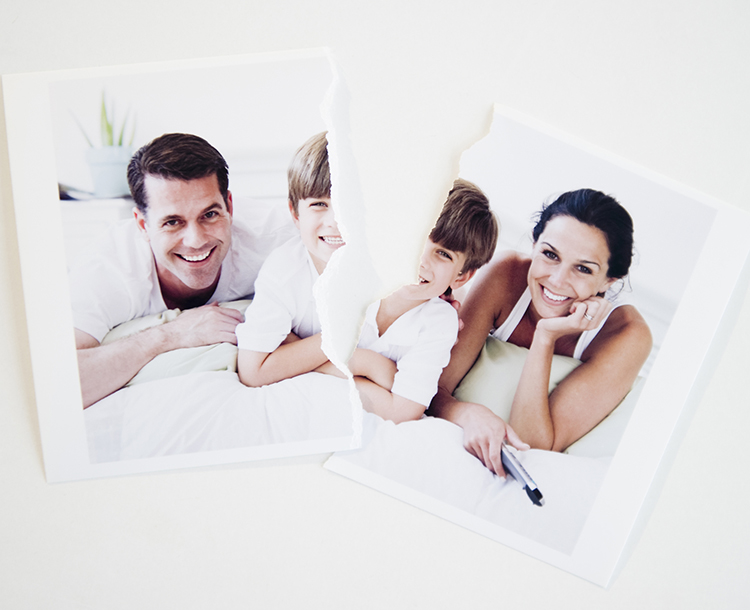For a separated parent, it is a poignant sight: small child, backpack stuffed with favourite toys and other essentials, ready to say goodbye and head off to their other home and other parent. So many children in divorced families live divided lives, shuttling back and forth between two different houses, sometimes even different towns. Those kids can find themselves saying a lot of goodbyes.
But now there is a more creative solution to parenting after separation that is being touted in some quarters as the next best thing to the family staying together. It’s called bird’s nest parenting.
The idea is the children remain in the family home while mum and dad deal with the disruption and inconvenience of moving in and out. Bird-nesting is becoming increasingly popular overseas and is starting to take off here, although shared custody arrangements are such a sensitive issue that, while parents were happy to discuss their experiences for this story, no one was prepared to use their real names.
Tag-team parents
Bay of Plenty mum Lisa tried bird’s nest parenting for several months after her marriage ended last year. Every other Friday night she packed her bags with everything she thought she might need for the following week, and moved out of her home, leaving behind her three young daughters. While she was staying with friends or family, her husband moved into the house, slept in the bed she had vacated, and cared for the girls. Then when Friday night rolled round again he’d be the one to pack up and stay with friends, while Lisa would move back in and live with the kids.
The advantages of this arrangement for the children are obvious: familiar surroundings and stable routines, no need for two sets of clothes and toys, no left-behind PE kits or lost school books. But for the parents, bird-nesting can present a number of challenges.
“If you’ve broken up in a horrendous situation and can’t stand the sight of each other then it’s not going to work,” points out Lisa. “My ex and I had fallen out of love and decided it was time to separate before things got worse and we started fighting. So we were amicable and still talking. To begin with we did night-about; I’d have a night with a friend then he’d do the same, and we wouldn’t leave until we’d got the kids down to bed. Then we started doing week-about and that let the children get used to only having one of us around.”
They had no issues agreeing on the practicalities, such as splitting the cost of running the family home and sharing tasks like grocery shopping. “But towards the end I was getting frustrated having to stay with friends and live out of a suitcase. It was a bit of a juggling act,” says Lisa, who works full-time.
For them this was a temporary staging post along the route to separation – one that has helped them better cope with the way their family has been rearranged. “Bird-nesting was a good transitional stage for us,” says Lisa who continues to co-parent amicably with her ex, though they now have separate homes.

The concept of bird’s nest parenting is thought to have originated in the US back in 2000 when a court in Virginia imposed a ‘bird’s nest custody arrangement’ where the mother stayed in the matrimonial home during the week, and the father on weekends.
Then famously in 2003 a judge in the family court in Ontario, Canada ordered a couple to bird-nest, complaining, “Time and again I have seen cases where the children are being treated as Frisbees.”
Even that might have gone unnoticed, but bird-nesting came to greater prominence recently when it was written into the script of US television series Transparent (screened here on Lightbox) with a divorcing couple having it imposed on them by a judge.
Is nesting really best?
In reality, this legal situation is highly unlikely to happen in this country, according to leading divorce lawyer Lady Deborah Chambers QC. “I’ve never seen nesting imposed by a court in New Zealand,” she says. “I think our courts would be reluctant to stomp in to the extent of prescribing that parents have to share a house.”
While the Auckland barrister has had clients who have tried bird-nesting of their own accord, she tells them while it may work in the short-term, not to expect it to last.
“Usually it goes on for a few months,” she says, “then one will get a new partner and then it doesn’t work because the other doesn’t want them sleeping in their bed. I have one client who has been doing it for a year, which is by far the longest.
“It can be a really expensive option,” Chambers adds. “You end up with three houses: the family home where the children live, then his and her apartments.”
Another issue is that, while you are trying to do what’s best, you may be sending mixed messages. “It can confuse children if people are doing too much ‘conscious uncoupling’,” explains Chambers (borrowing the phrase from Gwyneth Paltrow who used it when she split from husband Chris Martin).
“If they go on holidays together and that kind of thing it makes the children think they’re going to get back together and delays grieving for the end of their parents’ marriage.
“I’m not opposed to nesting per se, but I think it’s a temporary step. Long term it’s better to have separate households. Clean break is one of our principles in law and that’s because continuing to have financial apron strings causes problems. There is research to show that once you achieve financial division, co-parenting improves because you’re no longer tied up with conflicts.”
The kids are all right
Auckland father Mathew has a positive view of bird’s nest parenting. He and his ex-wife managed it for 16 months, until the time came to divide their assets, and he believes that so long as you have clear rules in place and you’re still communicating well enough, there is no reason why it shouldn’t work. Mathew’s daughter, now 12, was five at the time of the split and the couple also had two much-loved dogs.
“One of the important things for us was that it kept the nucleus of daughter and dogs together,” he explains. “The logistics worked out for us. My ex-wife’s parents lived close by so moving out of our home wasn’t too difficult for her. And I travel quite a bit for my work so often we were able to co-ordinate. When I wasn’t travelling, I lived in a place nearby that I rented.”
It helped that they already had regular routines around housework, walking the dogs and maintaining the garden that they were able to continue. “There can be enough conflict without fighting over those,” points out Mathew, who says it is also vital to decide how finances will work.
“The advantage for us was absolute continuity for our daughter. All she had to do was adjust to us moving in and out. It eased her into our separation and was a very good transition. I would definitely advocate it.”
Of course, there were downsides. “One difficulty was that as soon as you got into a rhythm it was time to move out,” recalls Mathew. “And you didn’t have access to your stuff so a lot of planning needed to happen. I have a software company and work from home at times so I found that awkward. I’d want things and they’d be in the family house.
“The other disadvantage is your private life can go into a spin. We had an agreement that if we did have partners we wouldn’t bring them home.”
A parental alliance
Bird-nesting is part of a move towards shared parenting after separation. Gone are the days when the children were expected to live with mum while their father was restricted to access at weekends and school holidays. Now, for most families, the ideal is frequent and natural contact with both parents, rather than strict visitation schedules.
While compromises are always going to be necessary, bird-nesting can be customised to suit a family’s circumstances. A more affordable solution – rather than the three-home system – might involve parents swapping between two shared bases, the family home and a smaller apartment. Some people want a weekend-weekday split – others may prefer to divide the time more equally. The arrangement can be pretty flexible; however, it is by no means a solution for everyone.
“It can be difficult to move in and out of each other’s intimate space and it can add to the complexity of an already complex negotiation,” cautions mediator and counsellor Jill Goldson, director of Auckland’s Family Matters Centre.
“It may feel like the right thing to do in the first instance, but when people separate they need to establish their own sense of self and identity while still remaining parents.
“It’s true that children don’t particularly like going between two parental spaces but if you think about the bird’s nest, they’ll feel disrupted by that too. They’re smart; they know what’s going on. It’s almost a cover-up of the reality.”

There are other ways of helping children adjust to the break-up of the family, reassures Goldson, who believes it is how rather than exactly what living arrangements are decided that is most important. Avoiding ongoing acrimony and staying out of court will minimise distress, which is why there are now mandatory mediation sessions for parents in dispute.
“For me, right in the middle of it as I am in my work, the real issue is parental alliance,” she says. “That is more important than the pattern of care. If it’s managed properly then the children will cope and adjust.”
Everybody is different and so is the way they separate. Whether couples opt for bird-nesting or a more traditional solution, what is vital is that everyone – children, parents and the world at large – finds a way to accept how the family has been altered.
“We need to change the attitude towards rearranged families,” says Goldson. “It’s not new; this has been going on for generations. But we got wedded to the idea of the 1950s perfect family; and divorce and separation became stigmatised.
“It’s here and it’s not going to go away. What we need to learn is how to better manage social change.”
Nesting rules
– Sort the cash
Discuss the division of chores, house maintenance and financial arrangements at the outset. For instance, who will be responsible for making sure bills get paid? It may help to have a separate bank account for nest expenses.
– Show respect
Honour the privacy of each other’s personal spaces in the nest.
– Stay united
Agree on parenting rules. The whole point of bird-nesting is maintaining routines and a stable environment for the kids so try to stay united on things like screen time, bed-time, homework, pocket money and discipline methods.
– Future proof
Establish a rule about overnight guests – even if neither of you has a new partner.
Words: Nicky Pellegrino
Watch: Gwyneth Paltrow talks candidly about her divorce from Chris Martin


